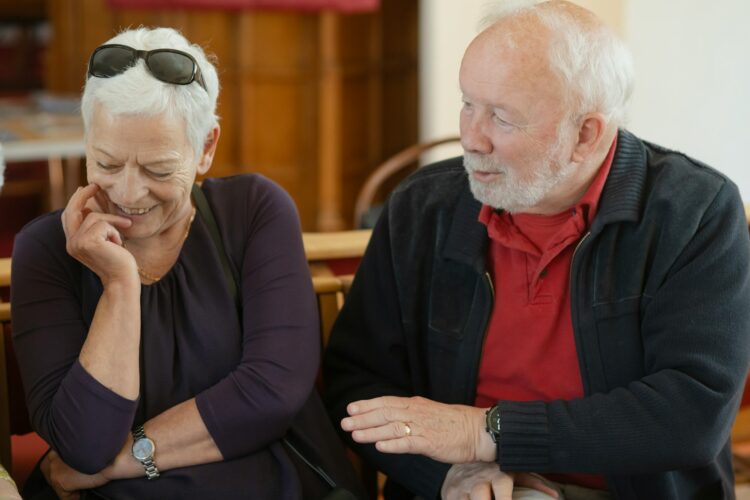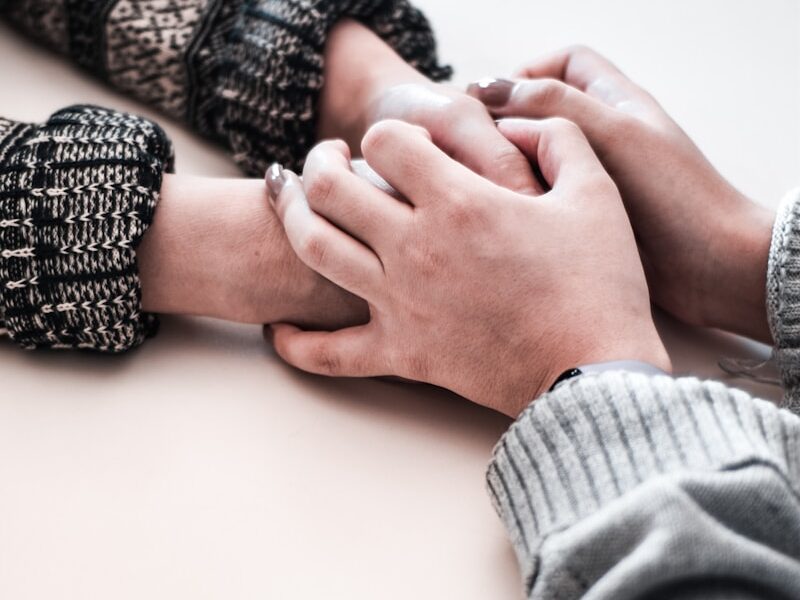
Attraction isn’t always obvious. Sometimes people show it through small actions or changes in how they act around you. If you pay close attention, you can catch these subtle signs without them ever saying a word. Here are fifteen of the most common ones.
They lean in when you talk.

When someone feels pulled toward you, they often close the distance without realizing it. They might tilt their head closer or shift forward in their seat so they can catch every word you’re saying. Even in a busy space, they keep their focus on you, blocking out distractions. Leaning in isn’t just about hearing you better—it’s about wanting to be in your personal space.
They mirror your movements.

People naturally mimic the actions of those they feel close to or attracted to. If you cross your arms, they might do the same a moment later. If you take a sip of your drink, they follow right after (kind of like telepathy). This happens because their brain wants to create a sense of harmony with you. It’s a quiet and unconscious way of saying, “I’m in sync with you.”
They touch their face or hair more often.

Attraction can make people more aware of how they look, and that awareness shows through small gestures. They might run a hand through their hair, adjust their glasses, or brush their fingers along their jaw. These touches aren’t random—they’re subtle ways of drawing your eyes to their face. It’s a mix of self-consciousness and the desire to look their best in front of you.
Their feet point toward you.

Body language often speaks louder than words, and feet can give away what someone feels. If their feet aim directly at you, even when they’re engaged in another conversation, it signals where their attention truly lies. The body naturally turns toward what it wants. This small detail might seem unimportant, but it’s one of the most honest signs of attraction you can spot.
They hold eye contact a little longer.

Eye contact carries a lot of unspoken meaning. If someone’s into you, they won’t just look at you—they’ll hold your gaze for a beat longer than usual. Sometimes they’ll glance away and then look right back, as if they can’t help it. That mix of steady focus and quick shyness creates a subtle tension that feels different from normal conversation.
They find excuses to touch you.

A quick hand on your arm when they laugh, guiding you through a crowd with a light touch, or brushing against you when passing something—these moments aren’t accidents. They’re testing how you respond while creating a small spark of connection. Each touch, though casual on the surface, carries intention. It’s their way of bridging the gap between friendly and something more.
They smile more when you’re around.

When attraction is in play, smiles tend to appear quickly and often. They might grin the moment they see you or light up during the conversation, even if nothing particularly funny is happening. Smiling signals comfort, interest, and warmth, and when it happens repeatedly in your presence, it goes beyond basic friendliness. They’re showing you that your company genuinely makes them happy.
They angle their body toward you.

Even in a crowded room, you can spot interest by noticing where their body faces. If their shoulders, chest, or hips stay angled toward you, it means you hold their focus. This positioning happens without conscious effort—it’s the body’s way of showing openness and connection. While others might be in the conversation, their stance says you’re the one they’re tuned into.
They laugh more at your jokes.

When someone’s drawn to you, their laughter comes easier. They might chuckle at even your mildest joke or laugh louder than the moment really calls for. This isn’t fake—it’s their way of encouraging more interaction and keeping the exchange enjoyable. They want you to feel good around them, and laughter is one of the simplest ways to make that happen.
They notice small details about you.

Attraction sharpens a person’s awareness. They might point out a new haircut, comment on your choice of shoes, or remember something you mentioned weeks ago. This level of attention shows they’ve been paying closer mind to you than to others. Noticing these small changes isn’t just about observation—it’s about caring enough to register the things that make you stand out.
They seem more animated when you’re near.

Some people light up when the person they like enters the room. Their voice might become more energetic, their gestures bigger, and their stories livelier. You might notice they interact differently with you compared to others (almost as if they’re putting on their best version of themselves). That extra energy often comes from the desire to hold your interest for as long as possible.
They touch or adjust their clothing.

Fixing a jacket, straightening a tie, smoothing a shirt, or adjusting jewelry are all signs they care about how they appear in front of you. These aren’t big, obvious moves—they’re quick, almost automatic adjustments. It’s their way of saying, “I want to look good for you,” without actually putting it into words.
They give you undivided attention.

When you speak, they listen closely without checking their phone, scanning the room, or looking distracted. They react to your words, ask follow-up questions, and give cues that they’re fully engaged. Focus like that takes effort, and when someone consistently does it for you, it often means they value the time and connection you share.
They lean closer during group conversations.

Even in a crowd, they find ways to get nearer to you. They might shift their chair toward yours, step into your space while listening, or angle their body so you’re within arm’s reach. This closeness isn’t accidental—it’s a way to keep you in their personal space without making a scene.
They find reasons to keep the conversation going.

They don’t just answer and move on—they ask more questions, bring up new topics, or circle back to something you said earlier. This isn’t small talk for politeness. It’s an attempt to keep your attention for as long as possible, because ending the conversation means losing a moment they don’t want to end.

